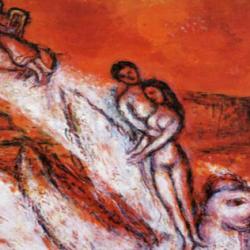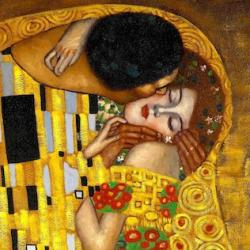Following the interpretation of Rashi, Nicholas of Lyra understood the Song of Songs as an allegory of Yahweh and Israel, leading up to the New Covenant when the Lord took a bride from every nations.
As Nicholas sees it, this is the reason for the complexity and difficulty of the Song: “the church understood in this way has existed in different times: in some periods she has offended the Bridegroom; in others she has done his will. Again, the church is gathered together from different nations, that is, from the jewish and gentile peoples, it contains the just and unjust, bishops and those subject to them. These, and other factors, make for the difficulty of the boo; for there are frequent shifts of one time-frame to another, from one part of the Church to another, and from the Church to God and back again.”
Yet, the starting point of the “parable” of the Song is clear: “even if . . . the Church has its origins in the beginning of the world, it first receives the name of Bride specifically at the giving of the Law on Mount Sinai, by virtue of which the people of Israel were betrothed to God by faith and worship, while the other nations fell into idolatry. Hence, when Solomon, writing at the dictation of the Holy Spirit, tells of God’s love and the Church’s love under the descriptions of Bridegroom and Bride, he begins from the time of the Exodus from slavery in Egypt, for that was when the Law was given.”
He goes on to take specific passages as references to events of the Exodus. The opening plea “let him kiss me with the kisses of his mouth” means that the people of Israel as bride “have ardently desired their escape from Egypt so as to be free from a cruel slavery and so as to be able to serve God with greater freedom and to cling to him with greater intensity.” “Your name is poured out like oil” means that “because of the wonders which God wrought for the sons of Israel in Egypt and in the Red Sea, the reputation of his name and of his goodness is spread to other peoples, with the result that many were converted to the jewish faith.” The maidens who love him are “many Egyptians were thus converted and fled from the land of Egypt with the sons of Israel.”
I am using the translation of Denys Turner’s Eros and Allegory: Medieval Exegesis of the Song of Songs (Cistercian Studies Series) .















